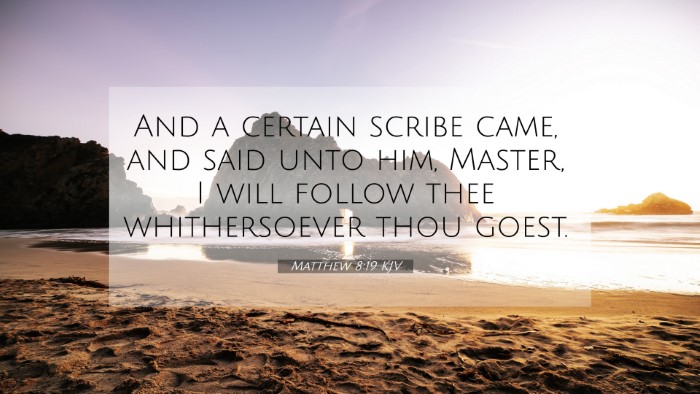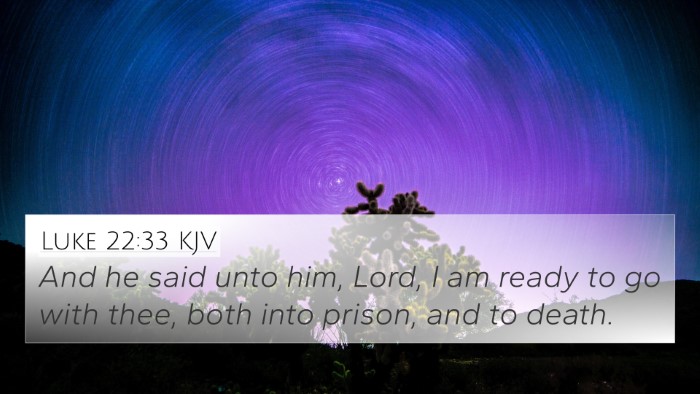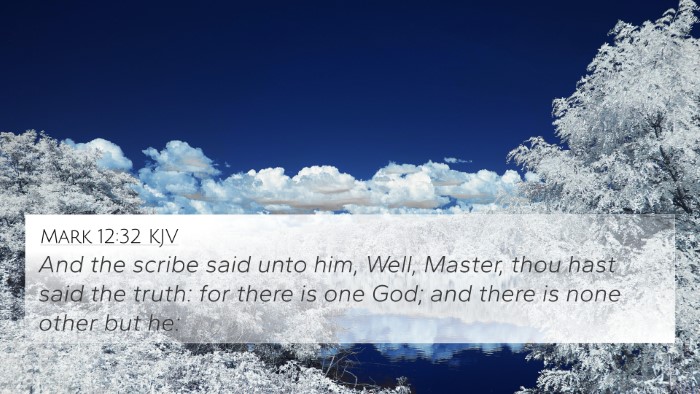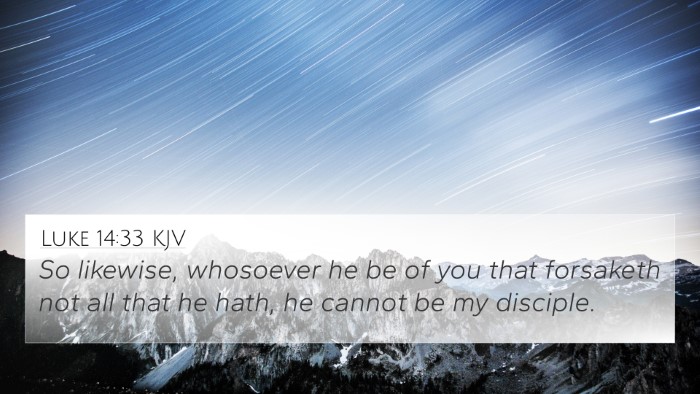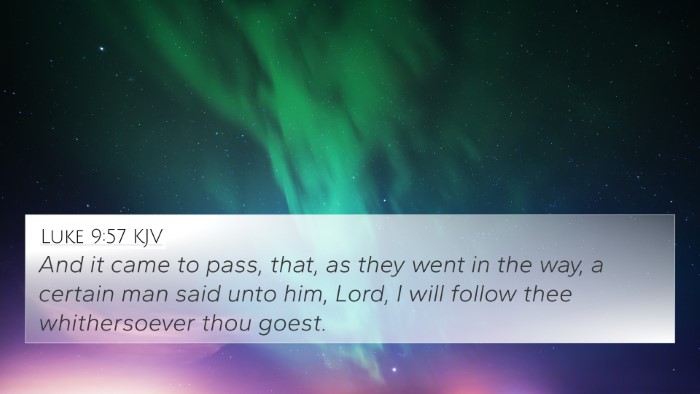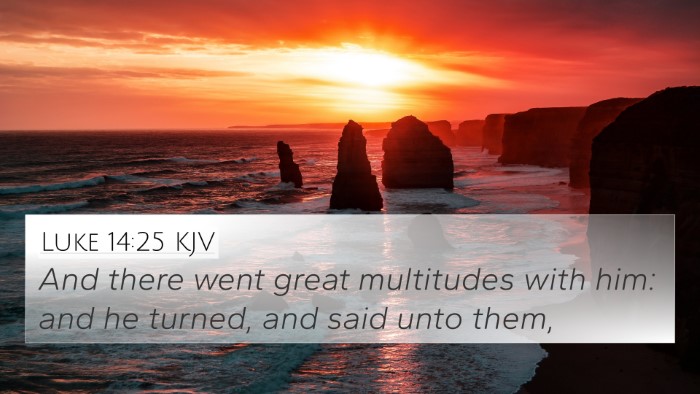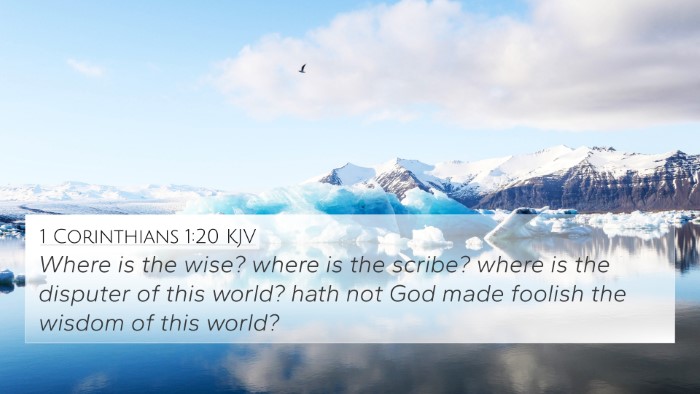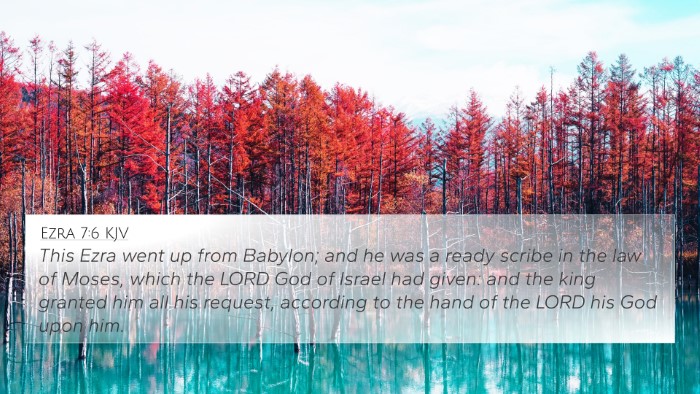Understanding Matthew 8:19
Matthew 8:19 states, "And a scribe came, and said unto him, Master, I will follow thee whithersoever thou goest." This verse captures a moment of eager commitment by a scribe, who represents those in Israel knowledgeable in the law and scripture but inquiring about the depth of discipleship with Jesus.
Historical Context
The backdrop of this verse is crucial to understanding its meaning. Published commentaries suggest that this moment occurs as Jesus begins to gather His disciples. The scribe’s willingness demonstrates a common desire among many to be part of Jesus’ revolutionary teachings and actions. Matthew Henry posits that this signifies the scribe's intellectual grasp of Jesus' ministry but hints at a deeper challenge of truly following Christ.
Key Insights
-
Intellectual vs. Practical Discipleship: Albert Barnes notes that mere profession of faith is not enough; action is necessary. The scribe’s claim reflects an understanding of Jesus’ authority but needs to progress to a lifestyle of sacrifice and obedience.
-
The Cost of Discipleship: Adam Clarke emphasizes that following Jesus involves challenges, including abandonment of earthly comforts and dependence on God for provision. This narrative aligns with Jesus' later teachings about the cost associated with being His disciple.
-
Symbolism of the Scribe: The scribe, often representing religious leaders, offers a contrast to the simplicity of the faithful disciples. Commentaries suggest he symbolizes those who seek knowledge without the willingness to fully surrender.
-
Expressions of Commitment: The phrase "whithersoever thou goest" indicates a profound commitment. Matthew Henry interprets this as an anticipatory expression, yet it provokes the question of whether the scribe has considered the implications of such a promise.
-
Challenge of True Following: The immediate next verses (Matthew 8:20) indicate Jesus responds with a sobering message about having "nowhere to lay His head," warning the scribe of possible hardships ahead.
Connections to Other Bible Verses
Matthew 8:19 intertwines with several other scriptures, enhancing our comprehension of discipleship and commitment within a biblical framework. Here are some significant cross-references:
- Luke 9:57-58: Similar account of followers' responses, emphasizing the costs of discipleship.
- Matthew 16:24: Jesus instructs his disciples to take up their crosses, aligning with the theme of self-denial.
- John 13:34-35: Calls for loving one another, rooting the discipleship in love and community.
- Matthew 4:19: Jesus calls the first disciples with a promise to make them fishers of men, highlighting active participation.
- Mark 10:29-30: Reward for those who leave everything to follow Him, reinforcing the notion of sacrifices for divine gain.
- Philippians 3:14: Paul discusses pressing toward the goal, mirroring the commitment stated by the scribe.
- 1 Corinthians 9:24: Running the race emphasizes discipline and commitment in the Christian life.
- Revelation 14:4: Speaking to the followers as those who follow the Lamb wherever He goes, linking to unconditional followership.
- Romans 12:1-2: Total dedication to God's service mirrors the commitment Jesus expects from His followers.
Thematic Connections
In addition to the direct scriptural links, this verse encapsulates broader themes prevalent throughout both Testaments:
- Faith and Works: The integration of faith in Jesus with actionable commitment mirrors James 2:26, where faith without works is dead.
- Cost of Following God: Old Testament narratives, like those in Exodus, often illustrate the significant commitments made by Joseph and Moses, echoing the future of Christian discipleship.
- Divine Calling: Throughout various passages, the theme of God's call to individuals for specific purposes reflects back to the scribe's commitment.
- Servanthood: The overarching call to servanthood in discipleship runs from the Gospels through to the epistles, linking back to the scribe's statement of intent.
Summary
Overall, Matthew 8:19 serves as a poignant reminder of the nature of true discipleship. The scribe serves as a type for many who understand but do not act, who profess commitment without realizing the inherent costs involved. The commentaries highlight the transformative journey from mere acknowledgment of Jesus as a Master to ultimately becoming obedient followers. This process is intricate and multifaceted, inviting a reflective examination of one's walk with Christ.


